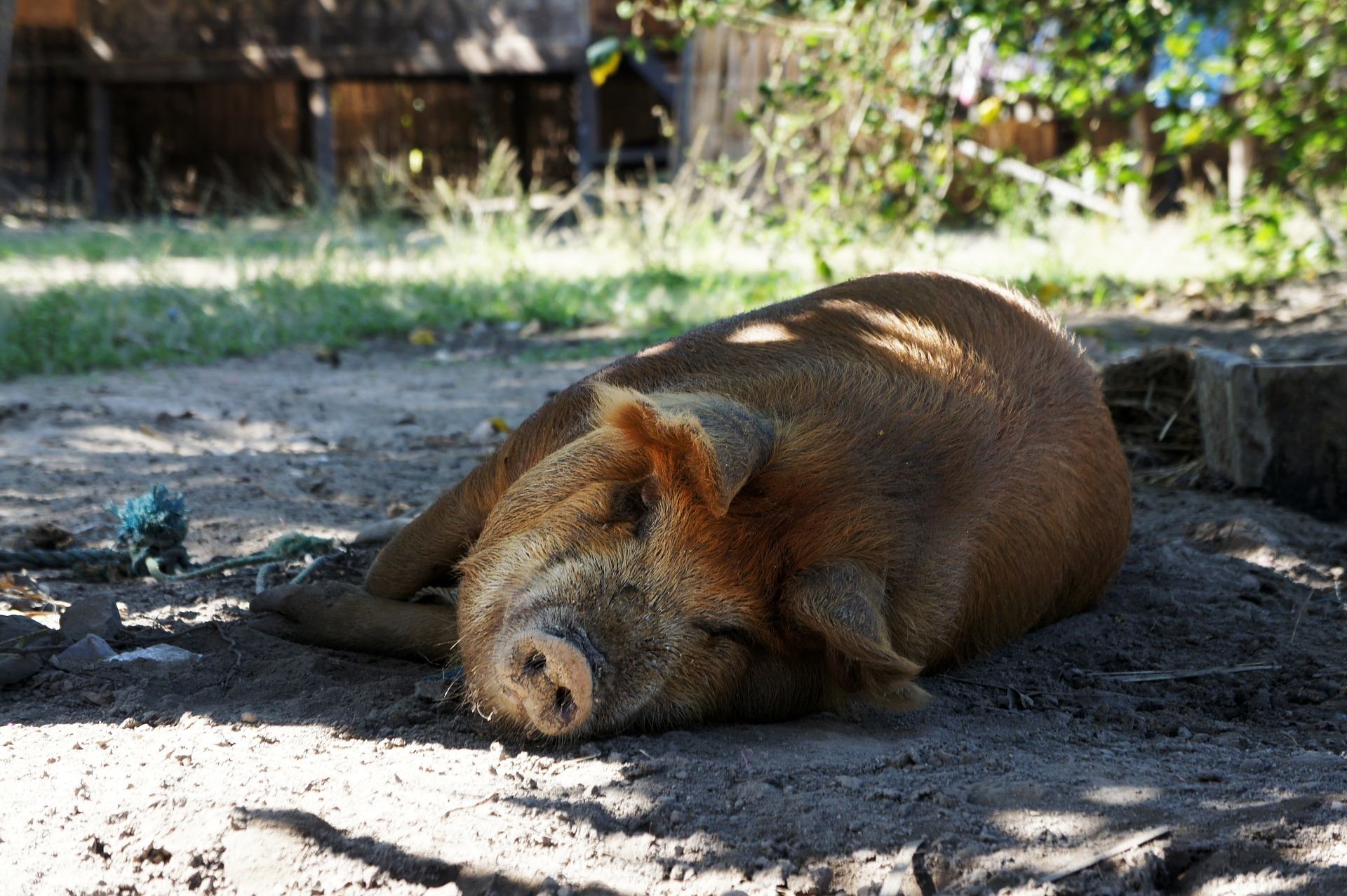While India is battling against the COVID-19 pandemic, Assam finds itself battling on an additional front. African swine fever — a severe, highly-contagious viral disease of domestic and wild pigs — has claimed lives of more than 2,500 pigs in around 306 villages across six districts in the state. This has affected livelihood of many farmers who are into pig farming in the state.
Bijoy Gerhi, who lives in No 2 Rangajan village in North Lakhimpur district in Assam, said: “Pig farming is the chief source of livelihood for villagers here. Almost everyone here have pigs. Many pigs have died in our village. They stopped eating after they were suffering from fever. Soon after this, they started dying. I went to Krishi Vigyan Kendra in Lakhimpur to find out the reason, I was informed that it was some new disease.”
According to the Department of Animal Husbandry, Assam, cases of African swine fever infection has been found in Sivasagar, Dhemaji, Lakhimpur, Biswanath Charli, Dibrugarh and Jorhat districts of the state.
Bhabesh Deka, veterinary expert, Krishi Vigyan Kendra, Lakhimpur, said: “As of now, the disease has spread across a few districts in Assam. We are getting several phone calls from the farmers who are asking about this disease. These people were already scared because of coronavirus, now African swine flu has added to their woes.”
The National Institute of High Security Animal Diseases (NIHSAD), Bhopal, has confirmed that it is African swine flu (ASF). According to the World Organisation for Animal Health, African swine fever is a serious viral disease that affects both domestic and wild pigs. It can be spread by living or dead pig or through pork meat. This disease, however, does not spread from animals to humans.
Bijoy Gerhi said, “Many families here are dependent on pig rearing. When people in the village would need money, they would sell pigs. We were already suffering a lot because of corona, if this new disease continues to spread, then we would suffer huge losses.”
On May 3, Atul Bora, minister Animal Husbandry, Assam, said that the African swine flu was detected towards the end of February this year, but it started in April 2019 at a village in Xizang province of China bordering Arunachal Pradesh.
A set of advisories issued by Veterinary and Animal Husbandry Department on #AfricanSwineFever that has affected piggery sector in #Assam and neighbouring states. #AnimalHusbandry @Dept_of_AHD @CMOfficeAssam pic.twitter.com/3V0uL5ji9B
— MyGov Assam (@mygovassam) May 4, 2020
Riyan Gogoi, who lives in Dyodhahi village in Dhemaji district of the state, said: “Initially, people didn’t even know about the disease. Many assumed that this has spread from wild pigs to the domestic pigs.”
“If the government doesn’t take any action immediately, then this would spread across the state and will cause a lot of damage,” added Riyan.
Talking about the treatment of the disease, Dr Pradeep Gogoi, deputy director, department of veterinary medicine, Assam, said: “As of now, there is no vaccine or medicine to treat this disease. We are trying to protect pigs that have not been infected. The veterinary department is screening pigs in the areas that have been recently affected.”
“As there is no treatment, there is a need to protect other pigs from the infected pigs. We will have to kill pigs that are found to be infected,” he added.
According to the ministry of animal husbandry, the population of pigs in Assam was 21 lakh in 2019. However, as of now, there are 30 lakh pigs in the state.
In a press conference, Sarbananda Sonowal, the chief minister of the state, said: “After a detailed study and research of African swine fever, the Government of India has issued guidelines to the Government of Assam. We are taking several steps to deal with this. The Department of Forest and Animal husbandry has been asked to ensure the safety of all living organisms. The veterinary department is working to formulate a comprehensive roadmap with the National Pig Research Centre of the Indian Council of Agricultural Research to save the pigs.”
According to the 20th livestock census, the number of pigs in India is around 91 lakh. Thousands of families in Assam, Arunachal Pradesh, West Bengal, Uttar Pradesh, Bihar, and Jharkhand, are dependent on pig rearing for their livelihood. If this virus spreads in other states, then it would be difficult to contain the spread.
Assam has completely banned the sale of pigs and pork in the affected districts. The Government has urged the neighbouring states to stop the movement of pigs in their areas in order to contain the spread of infection in other areas.


















